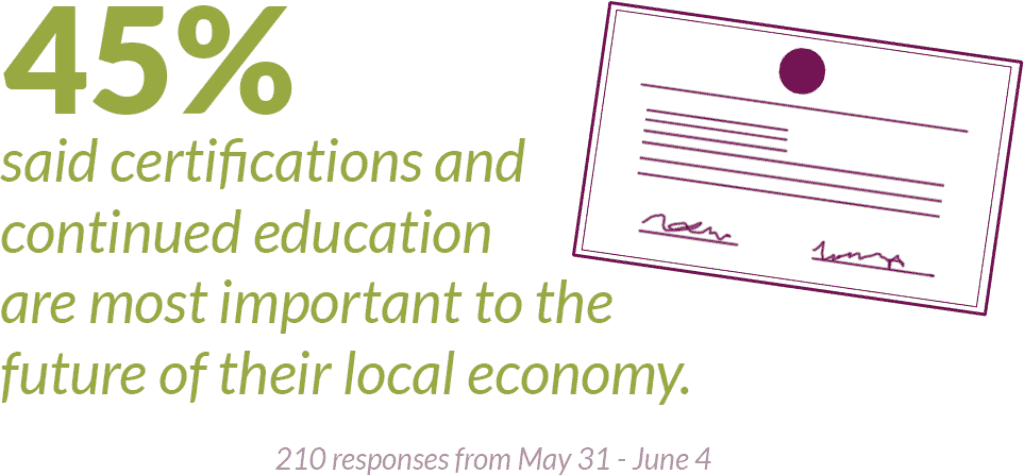The 58 community colleges in North Carolina are a stronghold for programs in customized training, continuing education, and workforce development. We wanted to hear from North Carolinians about what they thought of community colleges and their impact on the local economy, so in our May 31 Reach Roundup newsletter, we posed our Question of the Week: “When you think about your local community college, which aspect of their work feels the most important to the future of your local economy?”
Response options included: preparing students to transfer to a four-year school, providing two-year associate’s degrees, providing certifications and continuing education, unsure, or other. Nineteen percent of respondents selected preparing students to transfer, 22 percent selected associate’s degrees, 45 percent selected certifications and continuing education, seven percent were unsure, and seven percent selected other.


Here are some of the comments we received:
“First, I suggest that prior to leaving high school or during a ‘gap year program’ that students have the opportunity to be mentored by someone in their chosen or potential field of endeavor. Do they want to be a nurse? Then have them see all the various settings that nurses can and do work in (nursing homes, industry, research, etc.). Help them to think and question how technology, communications, changing demographics and yes, even politics, will impact them.”
-Carol from Durham, NC
“The question should have included the vocational component of community colleges. With vocational education lacking in the public schools, education in the trades needs to be available somewhere. Many community colleges have the wherewithal to provide this much needed service.”
-Keith from Goldsboro, NC
“All 3 tasks are equally important, but the community college/technical colleges do a better job of training/certifying our ever changing workforce.”
-Nancy from Lumberton, NC
“Our local community does not have a lot of jobs that require a four year degree. In fact, the students would need to be ready to enter the workforce.”
-Alison from Greenville, NC
“Community Colleges should remain an option for students who cannot afford to attend a four year school. Students who are unsure what they want to major in can still take required University courses and can earn certificates in Vocational Tech specialties. College credits earned at Community Colleges should all transfer to all four year schools upon completion of an AA Degree.”
-Denise from Charlotte, NC
Interested in participating in Reach NC Voices? You can sign up to share your thoughts on our weekly questions. We’d love to hear from you!


